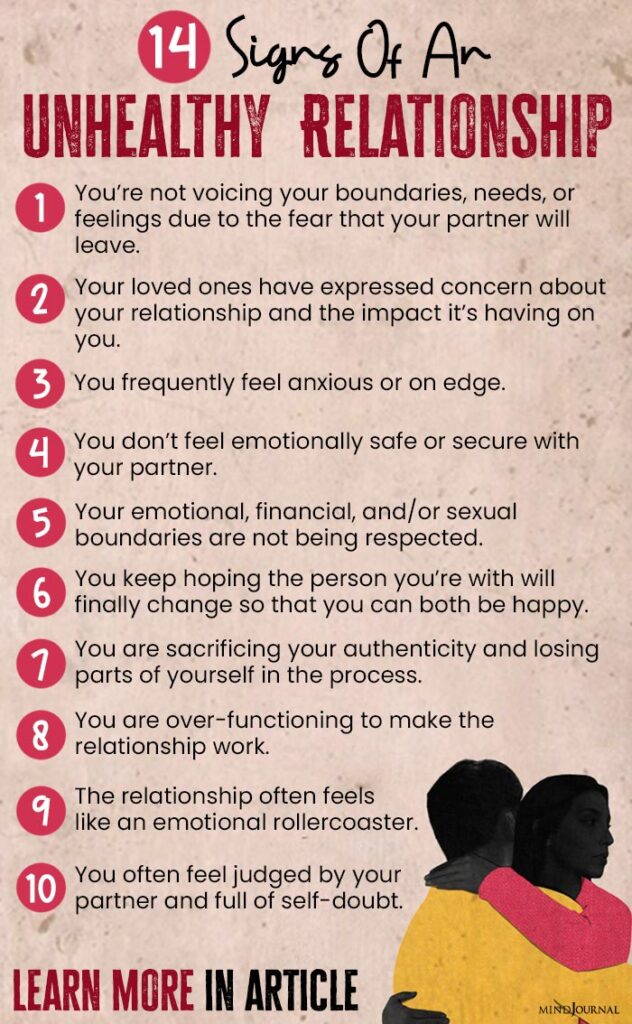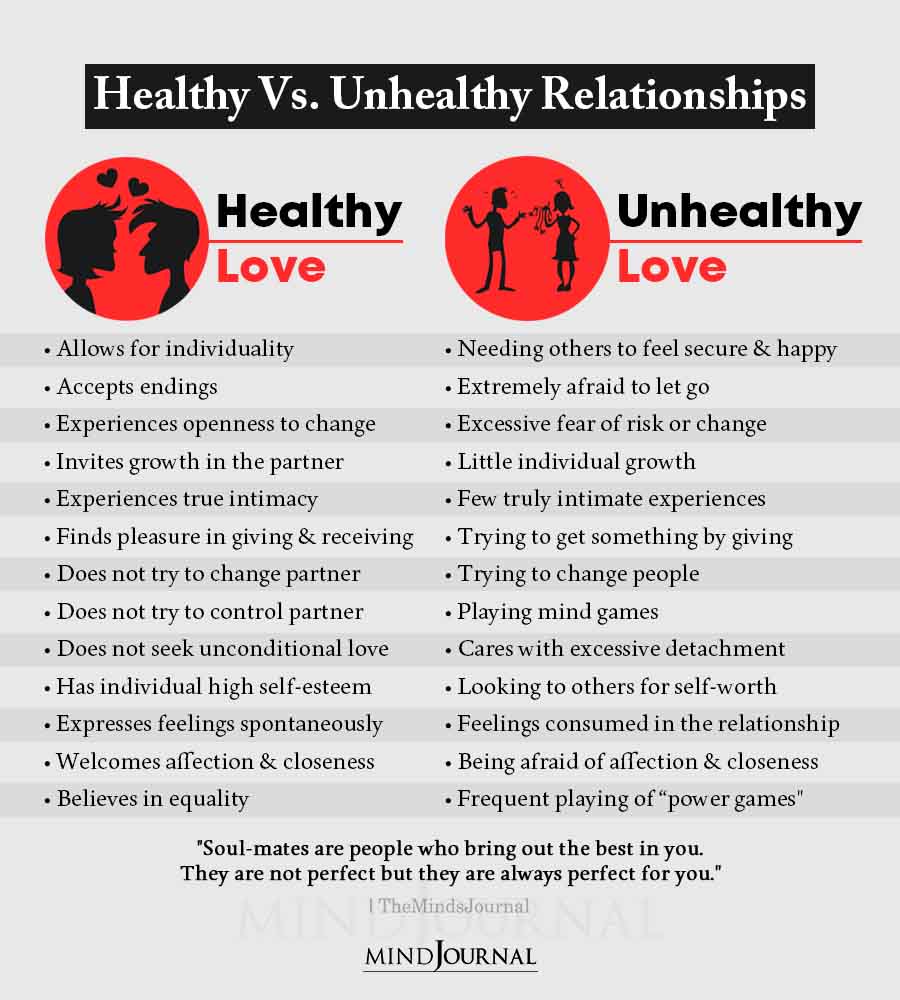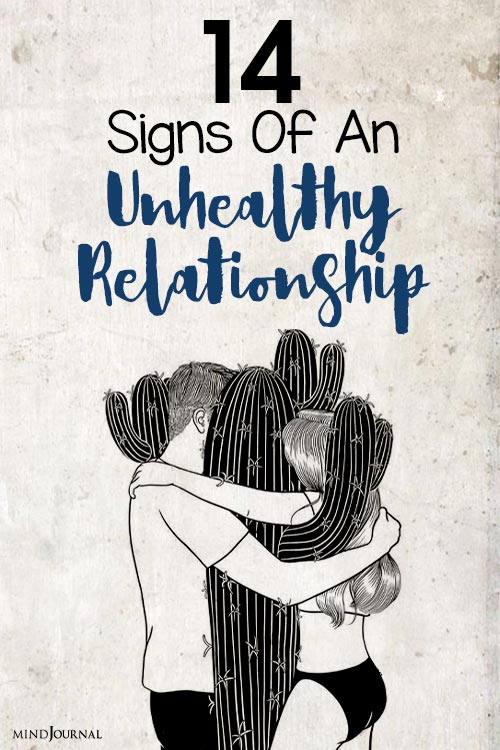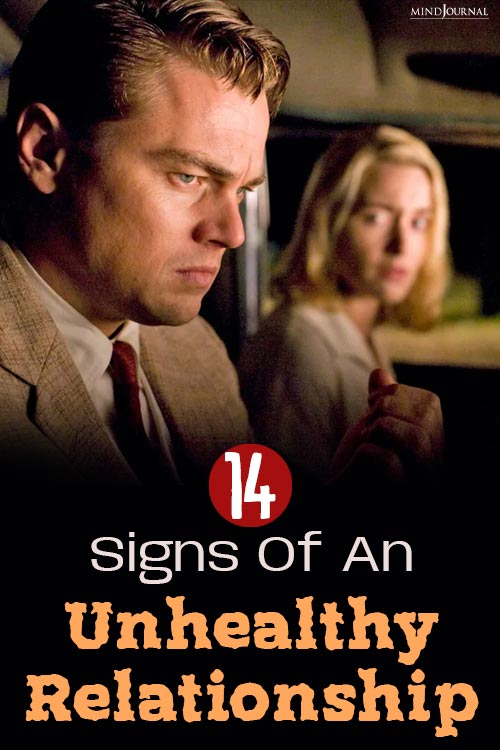Sometimes when you are in an unhealthy relationship with someone, it can be difficult to see everything in an objective way, because of the love you feel for them. But looking out for the signs of an unhealthy relationship can help you protect yourself from further pain and heartbreak. Let’s find out the red flags of unhealthy relationships.
KEY POINTS
- Avoiding problems in a relationship does not make them go away. They simply become harder to ignore.
- Being disconnected from oneself can make it more difficult to see when a relationship is unhealthy.
- One sign of an unhealthy relationship is when one person is over-functioning trying to keep it afloat.
The most important truths are the ones we often hide from ourselves when we’re not ready to face our fears or let go of a relationship we’ve been holding onto at the expense of ourselves.
When you want so badly for a relationship to work that you avoid these important truths, they don’t go away. They show up at first as a small whisper, then they grow louder until it becomes harder and harder to ignore them.
However, because unhealthy relationships can cause you to question yourself and your judgment, you may tune out this whisper—even as it grows louder. This disconnection from yourself may make it even more difficult to recognize when a relationship is not serving you.
Following are 14 signs that you may be in an unhealthy relationship.
Related: 5 Red Flags Of Unhealthy Relationship
14 Warning Signs Of An Unhealthy Relationship

1. You’re not voicing your boundaries, needs, or feelings due to fear that your partner will leave, label you as demanding or needy, and/or, will “blow up” at you.
2. Multiple friends or family have expressed genuine concern about your relationship and the impact it’s having on you.
3. You feel a growing discomfort about the relationship but ignore it or rationalize it by telling yourself that all relationships are hard and take work or that you know the other person can change.
4. You feel the need to hide or distort parts of your relationship when sharing with others due to fear of judgment and may even distance yourself from loved ones as a result.
5. You frequently feel anxious or on edge about your relationship.
6. You are over-functioning (trying to save your partner, keep the relationship afloat, or overcompensate for the lack of effort they’re making) to make the relationship work.
7. The relationship often feels like an emotional rollercoaster, you don’t know when you’ll be up or down.
8. You keep hoping the person you’re with will finally change so that you can both be happy.
9. You don’t feel emotionally safe or secure with your partner.
10. You are sacrificing your authenticity for the relationship and losing parts of yourself in the process.
11. You don’t feel good about yourself in this relationship. You often feel judged by your partner and full of self-doubt. You may even experience a lot of self-blame for anything that goes wrong in the relationship.
12. You notice that after you got into this relationship, you started to feel distant from your family and friends.
13. You often feel like you are walking on eggshells around your partner and conflict that arises in the relationship typically feels emotionally unsafe.
14. Your emotional, financial, and/or sexual boundaries are not being respected in this relationship.

5 Questions You Can Ask Yourself If You Suspect Your Relationship Is Unhealthy
If you are seeking clarity about whether your relationship is unhealthy, consider reflecting on the following questions:
- If a friend told you they were dating this person, would you approve or have concerns about them?
- How do you feel about yourself in this relationship?
- If everything remained the same a year from now, would you be happy or dissatisfied?
- If you’re experiencing self-doubt and anxiety about the relationship, have you experienced these same feelings with other partners? If so, are there any similarities between those previous relationships and your current one?
- What are the reasons you are choosing to remain in this relationship?
Related: 11 Signs To Know If Your Marriage is Just Unhealthy Or Completely Toxic
Want to know more about the signs of an unhealthy relationship? Check this video out below!
Disclaimer: This post is for informational purposes only. It is not intended to substitute professional or psychological advice, diagnosis, or treatment. Always seek the advice of your mental health professional or another qualified health provider with questions regarding your condition or well-being.
Ready to create more satisfying relationships? Dr. Roxy’s free Relationship Needs Guide can help you identify what you want from a relationship, whether you’re single or in a relationship. Sign up for her monthly emails here and download your copy today.
Written By Roxy Zarrabi, Psy.D Originally Appeared In Psychology Today













Leave a Reply